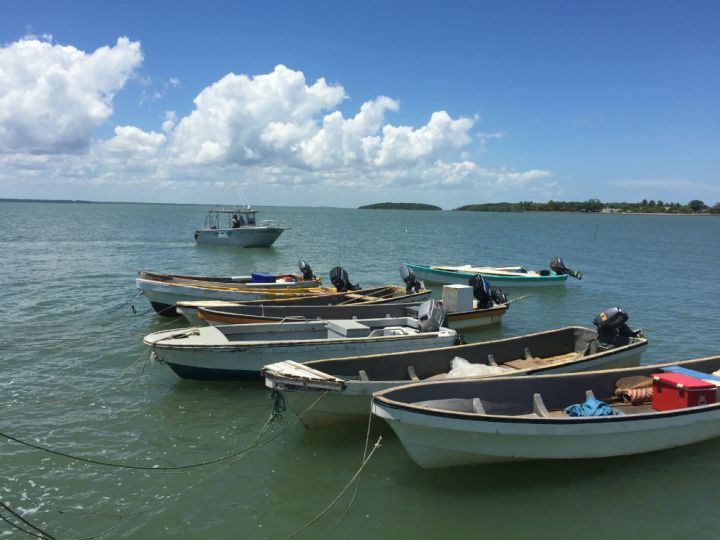
The Torres Strait Regional Authority (TSRA) Compliance Management Unit has commenced operations and is now patrolling the waters of the Torres Strait.
The Compliance Management Unit (CMU) recently began patrols of regional waters with support from the TSRA Rangers of Boigu Island. Their work includes monitoring turtle and dugong numbers, environmental issues and surveillance for illegal activity.
The TSRA Chairperson, Mr Pedro Stephen AM, said the CMU will provide effective investigative support to the TSRA Rangers across the region.
“The TSRA is proud to announce that patrols have already commenced, and Boigu Rangers are now supporting CMU staff with their surveillance around Boigu waters,” he said.
“The Compliance Management Unit adds another level of surveillance for illegal activity to assist the Rangers and report back to the appropriate regulatory agencies.
“The CMU will be working closely with the relevant agencies to ensure local residents understand the regulations on a range of environment and fisheries issues.
“CMU staff and Saibai Rangers have also participated in two-day multiagency patrols with the Department of Foreign Affairs and Trade (DFAT), Australian Border Force (ABF), Australian Federal Police (AFP) and Australian Fisheries Management Authority (AFMA) to monitor border and fishing matters.
“A highlight of the patrol was the extensive local knowledge of the TSRA Rangers, which we understand has led to the identification of areas of interest and new intelligence on illegal activity.”
The TSRA CMU is currently made up three staff including Project Manager, Paul Cochran, and Senior Compliance Officers, Alicia Sabatino and Quinten Hirakawa.
They have been kept busy with the help of excellent reporting from community members and Rangers across the Torres Strait, which has led to investigations and seizures by regulatory agencies.
The typical matters being reported by the community include illegal fishing of turtle and dugong and environmental matters.
Ongoing patrols are planned with the TSRA Rangers in a number of areas identified as being at risk.

